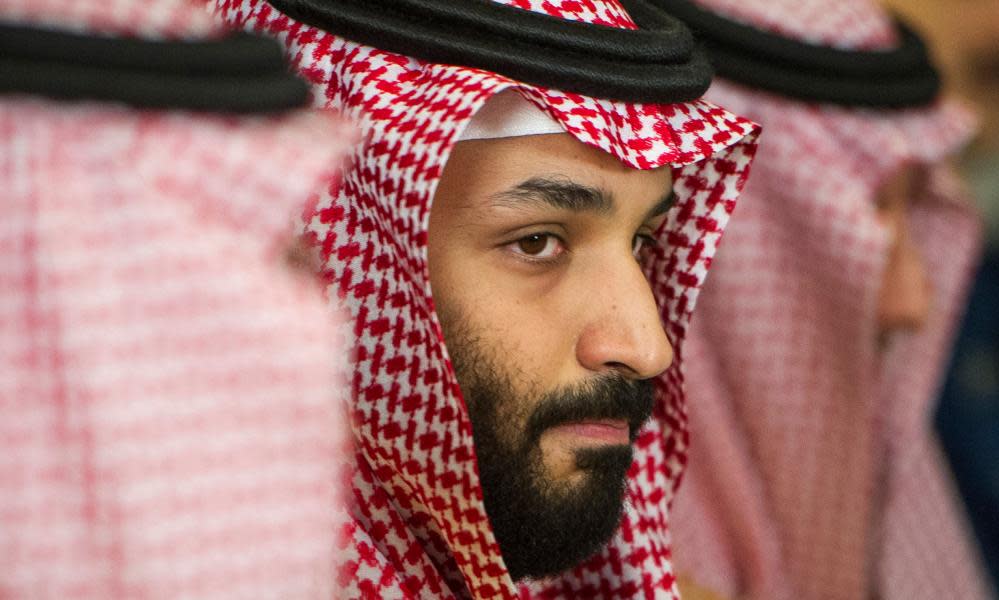Mohammed bin Salman never was a reformer. This has proved it

In June, when the ban on Saudi women driving ended, it was portrayed around the world as part of a modernising, liberalising agenda by the new crown prince, Mohammed bin Salman. Yet the authorities ordered female activists not to speak out in its favour. Their blunt message was that what was being offered was the gift of King Salman and his crown prince son, and not a result of the campaign by female activists. In fact, the government had arrested 11 of these activists a month beforehand. Though four were released, the remaining seven had led a petition demanding that the female guardianship system – which treats adult women as legal minors – be abolished. They remain in detention without charge, but could face up to 25 years in jail.
In this way, what happened was nothing to do with reform but more like business as usual. In many ways the crown prince has already been more despotic than previous rulers, so the murky events in Istanbul surrounding the disappearance of Jamal Khashoggi in the Saudi consulate should not be quite as shocking as they may have first appeared.
In the summer of 2017, 30 Saudi clerics, writers and intellectuals were jailed for expressing their opposition to the policies of the Royal Palace driven by Bin Salman. It was then that, sensing his arrest was imminent, Khashoggi fled to Washington. An eminent journalist and editor for 30 years, he had been banned from publishing articles or appearing on TV in December 2016 after his criticism of US president-elect Donald Trump.
In his opinion articles in the Washington Post, he lambasted Riyadh’s diplomatic and commercial blockade of Qatar, its forcing of Lebanon’s prime minister Saad Hariri to resign (later revoked), and the crackdown on dissent and the media.
Before the ascension to the throne by Crown Prince Salman bin Abdul Aziz in January 2015, the Saudi monarchy allowed space, however reluctantly, for non-establishment Wahhabi clerics, and silenced dissenters by intimidation, co-option through cash handouts, and in the case of foreign-based opponents, periodic kidnaps. With the swift ascendancy of the headstrong Bin Salman, this changed.
He has grabbed all centres of power, not only in the government – defence, the National Guard, interior ministry and its intelligence agencies – but also in the form of Saudi Aramco, the world’s largest oil corporation, as well as in construction and broadcasting. Bin Salman achieved this under the guise of launching a seemingly popular anti-corruption campaign, sanctioned by his father, in November 2017 – detaining 326 businessmen and princes in the swanky Ritz-Carlton hotel in Riyadh. Royal court officials said the detainees had stolen assets from the government.
It was thus that the kingdom’s topmost duo eliminated their rival powers, including descendants of former King Abdullah. His son, Prince Mutaib, was removed as commander of the powerful National Guard.
Prince Alwaleed bin Talal, the richest Saudi, with a net worth of $17.4bn, was confined to the Ritz-Carlton for almost 12 weeks. Eventually, after reaching an undisclosed deal and telling a TV interviewer that “everything’s fine”, he was released. His vast mansion was placed under armed guard. Like all other freed detainees, he had to wear ankle bracelets so that his movements could be traced.
In January, security services arrested 11 princes after their refusal to leave the historic Qasr al-Hokm palace in old Riyadh. They were held at al-Hair maximum-security prison. They had gathered there merely to frame an objection to a decree in which the government would stop paying the princes’ utility bills.
The detained women’s rights activists have been smeared in the state-guided newspapers, which have accused their campaign of treason and implied it is funded by the much maligned Qatar.
Thanks to their sympathisers, and international human rights organisations, the women’s rights activists remain in the public eye. In sharp contrast, the fate of the dissenting clerics, writers and intellectuals held without trial remains unknown. Equally unknown is the fate of the 56 Ritz-Carlton detainees who were brave enough to resist official coercion and threats, and were then transferred to traditional jails. These persecuted groups have become non-persons, the early victims of a totalitarian regime in the making under the 33-year-old Bin Salman.
Yet history shows that the brutal suppression of dissent leads to a build-up of popular discontent to a boiling point, with disastrous consequences. King Salman is old enough to remember what happened to the shah of Iran. He should share his memory with his most favoured son.
• Dilip Hiro is the author of Cold War in the Islamic World: Saudi Arabia, Iran and the Struggle for Supremacy

 Yahoo News
Yahoo News 
